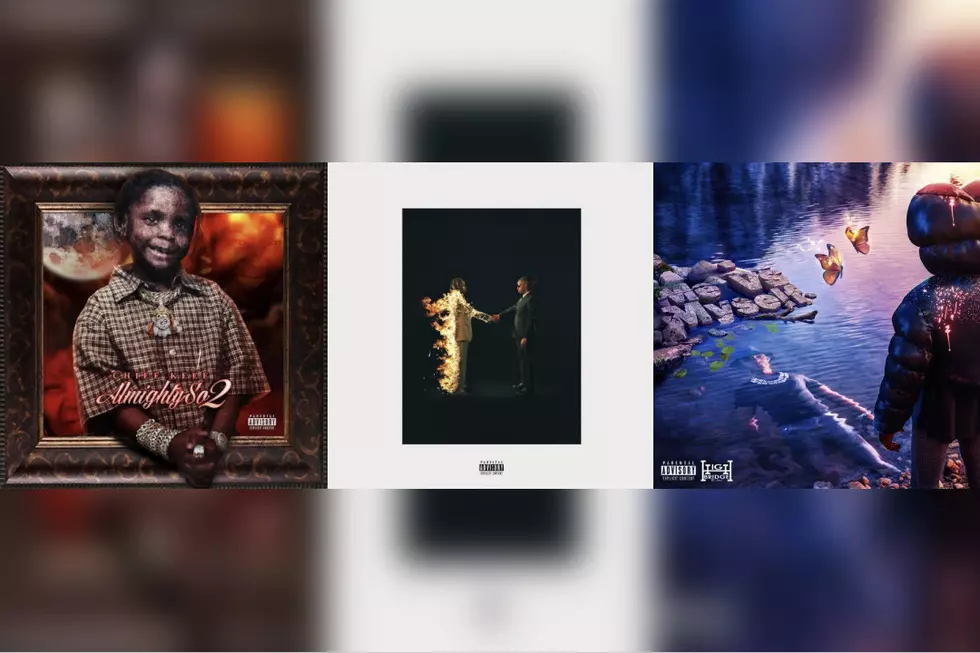
Smoke DZA Remains Consistent And Nostalgic On ‘Dream.ZONE.Achieve’
One of the more talked-about threads in hip-hop over the last few years has been the resurgence of New York as rap music’s creative and commercial hub. In 2012, A$AP Mob went from underground mixtape up-and-comers to international pop superstars in a matter of months, with artists like Joey Bada$$, Action Bronson, and Flatbush Zombies riding their coattails to a comfortable place in the mainstream. Jay Z is still putting out albums, and rumors of a new Dipset album have picked up steam.
Right around the corner from the Dips and the Mob in Harlem, Smoke DZA has been building a quiet but prolific career for himself (three studio albums and five mixtapes in three years). Despite his proximity to the epicenter of the New York resurrection, DZA’s name is often left off the list, as he’s yet to land that breakthrough release to launch him him onto festival bills and magazine covers. While Dream.ZONE.Achieve succeeds in capturing the New York rap vibe with confidence and without compromise, certain elements hold it back from being that release for the Harlem native.
Take a 30-second core sample from any moment on Dream.ZONE.Achieve and you'll find a delightful mix of Smoke's hardened “Nas-meets-Curren$y-meets-Styles P" delivery, a sprinkle of Harlem's signature giving-no-fucks-ness (see: Cam'ron's verse on "Ghost of Dipset"), and likely more than one instance of DZA's signature, 'Riiiiiiiight?' It is all tinged with a cloud of weed smoke and fixed upon a foundation of masterfully smooth, gritty, and funky production (Read: Modern "New York" rap music at its best). However, while all of the ingredients cook up a good song on more than one occasion, the length of the album dulls its overall flavor and makes the project as a whole really tough to swallow.
D.Z.A clocks in at over an hour and twenty minutes (well over twice the length of 2012's Rugby Thompson), and because of this, it can't avoid sounding confused and unfocused when consumed in its entirety. Stand out tracks stand out less, and when it's over, its hard to not immediately forget all what you just heard it until you listen to in again. It's a shame, because every song on this album is good, but when dumped on the listener like a pushy friend’s old external harddrive, said gems are hard to make sense of.
While the songs hold weight, the album's lack of focus is palpable on the track level as well. The music (beats, voice, flow) is consistently on point, but Dream.ZONE.Achieve is conceptually indecisive. Covering familiar territory like smoking weed and being slept on, DZA capably hops around from one quotable gangsterism to another with a flow as smooth and versatile as anyone out right now. His real shortcoming is not developing those quotables into something greater and more cohesive (again, see: Killa's verse on "Ghost of Dipset” for an example of conceptual cohesion).That makes the tracks head-nod-worthy but not necessarily memorable. The smoother tracks are D.Z.A's most focused moments; “Robin Givens” and “Jigga Flow” are certified jams.
There are some clues scattered throughout showing that thought was put into DZA's sequencing. The album's closer, "Achieve," his version of College Dropout's "Last Call" or The Black Album’s “My First Song,” features a presumably off-the-dome autobiography as told be DZA himself and opens with and indictment of everyone who has left him out of the New York Resurrection conversation, "...like [he] moved or something." At about two minutes in, DZA begins telling his story, mentioning how he used to carry Pete Rock's crates for him back when he was 19, then pointing out that the beat he’s telling the story over is produced by Pete Rock himself.
Criticisms of the portioning aside, D.Z.A should provide Harlem rap loyalists with a highly listenable distraction to hold them over until that new Dipset album drops. Smoke’s style is nostalgic without sounding corny, confident and hungry without losing its sense of humor. This album reads more like an rare, extensive box set than the three-act concept album (named for the "DZA" in "Smoke DZA") is presumably trying to be. He could have benefited from having the album broken up into seven-track EPs and released over the course of two-three months, but we're forced to aimlessly sift our own way through D.Z.A. Lucky for us, there’s enough gold in there to go around.—Nick de Molina
More From XXL









